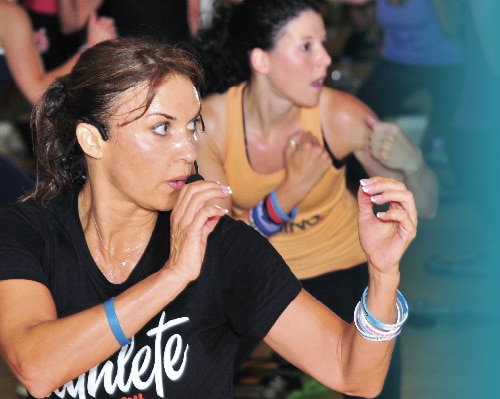
Exercise and Genetics: Is the Love of Exercise in Your Genes?
Genes play a role in so many things – whether you’re short or tall, where you store fat, what diseases you’re susceptible too and what color hair and eyes you have. They even play a role in what you like and dislike and your basic personality although the environment is obviously an important factor too. What role do genes play in whether or not you like to exercise?
In a study carried out at the University of California at Riverside, researchers discovered when they bred highly active mice that loved to run with other highly active mice, their offspring were also mice that enjoyed running and voluntarily ran up to 3 times more each day than mice in a control group.
In another study at the University of Missouri, researchers selectively bred highly active and “couch potato” rats through several generations and looked at the genetic differences between the mice. They were able to identify 36 genes that seem to play a role in “exercise motivation.”
Of course, you can’t always extrapolate from rodents to humans since mice and rats live in a controlled setting. On the other hand, there is research showing that genetics play a role in whether or not humans are motivated to exercise or choose instead to spend their “exercise” time on the couch. By looking at the exercise habits of identical twins and fraternal twins, European researchers came to the conclusion that about 60% of a person’s motivation and desire to exercise is genetic. The rest is determined by environment. Did you grow up in a household that stressed staying active? Did your parents, brothers, and sisters work out? Obviously, this would have an impact on you.
Some studies in humans have even looked at the actual genes of people who love to exercise and those that avoid it like the plague. They found exercise lovers shared some specific gene similarities and these genes were different in people who are averse to working out. To add more credibility to this argument, some studies show that close relatives tend to exercise about the same amount even when they’re raised in completely different environments.
You Still Have Free Will and the Ability to Choose Exercise over Being a Couch Potato
Since there are theoretically 36 or more genes that affect how each of us feels about exercise, there would be lots of “degrees” to which people like or dislike exercise. Few people would inherit all the genes that make them loathe working out. If they did, they would be at risk for becoming a true couch potato.
Let’s face it, not everyone exercises because they love it but because it’s the right thing to do for health and longevity. For many, the desire to be healthy and to feel good overrides their aversion to getting up off the couch. Plus, it’s hard to deny the good feeling you have when you’ve completed a tough workout, endorphins and all.
You don’t have to love it while you do it to be motivated to work out. You can be motivated by the results. Some people are willing to work at something they don’t necessarily want to do to get the reward at the end. Not everyone you see working out is doing it because of a deep love of exercise but because they feel better for having done it. Sound familiar?
The Bottom Line?
Despite evidence that the love of exercise is partially determined by genes, don’t use your DNA as an excuse not to be active. Genes aren’t destiny. Vary your workouts so you don’t become bored, remind yourself of the benefits of a good workout – and keep on exercising.
References:
Eurekalert.org. “Capacity for exercise can be inherited, UC Riverside biologists find”
The News Bureau University of Missouri. “Couch Potatoes May Be Genetically Predisposed to Being Lazy, MU Study Finds”
Related Articles By Cathe:
Does the Motivation to Exercise Lie in Your Genes?
6 Ways to Keep Working Out Fun
2 Types of Exercise Motivation & Why Only One is Sustainable

